Although most churchgoers want to serve in their communities for gospel impact, there is a noticeable gap when it comes to the number who are already volunteering for a charity.
Most Protestant churchgoers say their churches encourage them to serve people not affiliated with their church and that they want to do so. But few have volunteered in the past year. More than 4 in 5 churchgoers say their churches encourage every adult to serve people outside their church (84%) and they want to serve these people in hopes of sharing the gospel (86%).
Despite saying they want to serve people who are not a part of their church, few churchgoers are even serving within the context of their own churches. Two in 3 (66%) churchgoers say they have not volunteered for a charity (ministry, church or non-ministry) in the previous year. Three in 10 (30%) say they have, and 4% are not sure.
According to the latest findings of the U.S. Census Bureau, 23% of Americans volunteered through an organization between September 2020 and September 2021.
“The easiest way to serve others is when a charity or group organizes the effort,” said Scott McConnell, executive director of Lifeway Research. “They recognize the need, come up with a plan and often gather needed resources. You just have to show up. Churchgoers say they want to, but less than a third showed up to help a charity in the previous year.”
Your tax-deductible gift helps our journalists report the truth and hold Christian leaders and organizations accountable. Give a gift of $30 or more to The Roys Report this month, and you will receive a copy of “Hurt and Healed by the Church” by Ryan George. To donate, click here.
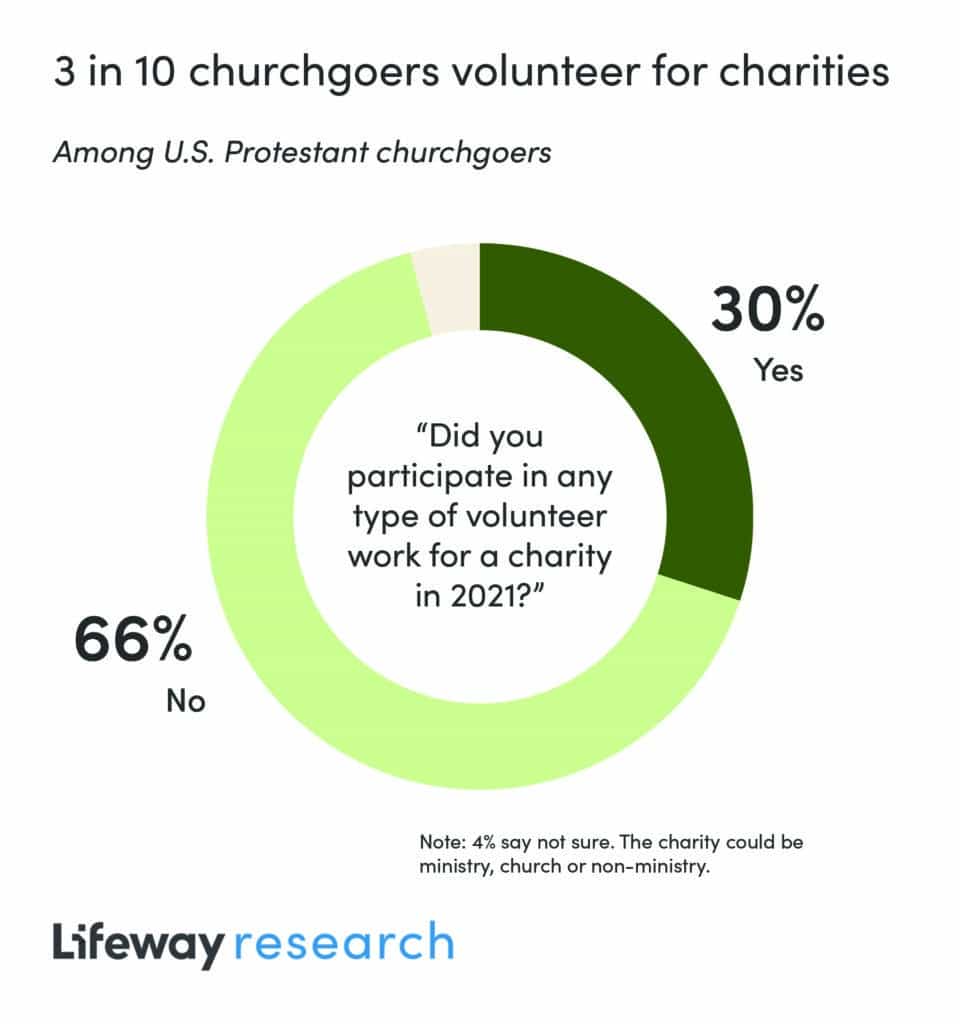
In another 2022 Lifeway Research study, Protestant pastors said churchgoers were more likely to serve in the church than in the community. Pastors estimated, on average, 42% of their adult churchgoers were involved with regular responsibilities at their churches. And pastors estimated an average of 27% of adult churchgoers were involved in serving in the community.
The gap between desire and action
Although younger churchgoers—18-34 (91%) and 35-49 (91%)—are more likely than those 50-64 (84%) and older than 65 (79%) to say they want to serve people in their community who are not affiliated with their church, the oldest churchgoers (those over the age of 65) are the most likely to say they participated in any type of volunteer work in the previous year (40%).
Denominationally, Methodists are the most likely to say their churches encourage them to be involved in ministry that serves community members not affiliated with the church (98%) and among the most likely to say they want to do this in hopes of sharing the gospel (95%). Still, Methodist churchgoers are the most likely to say they did not participate in any volunteer work in the previous year (88%).
“This study did not measure service churchgoers may have done individually for their neighbors. Meeting such needs as they arise is a great form of service,” McConnell said. “But some of the most widespread needs in communities require volunteers working together, something that the majority of churchgoers don’t do over the course of a year.”
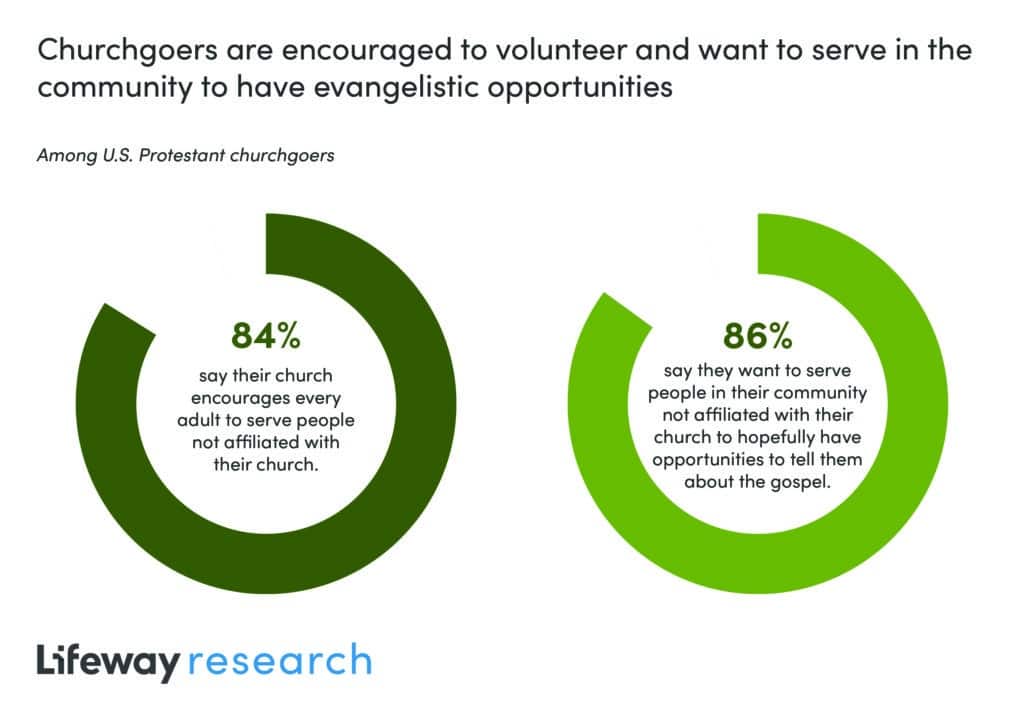
A similar gap between desire and action exists for Christians sharing their faith, according to a 2022 Evangelism Explosion study conducted by Lifeway Research. More than 9 in 10 (93%) self-identified Christian adults in the U.S. say they are at least somewhat open to having a conversation about faith with a friend. And around 4 in 5 (81%) feel similarly about speaking about faith with a stranger. Yet, in the past six months, 53% had a conversation about faith with a loved one. And 40% had a conversation about faith with a stranger.
Although many factors may contribute to this gap, pastors identified one in a 2021 Lifeway Research study that may play a role in churchgoers’ hesitation to get involved in both evangelism and community service—comfort. More than 2 in 3 Protestant pastors (67%) say comfort is a modern-day idol that has significant influence in U.S. churches.
Cultivating desire that leads to action
Theological beliefs and church attendance frequency contribute to the likelihood a person wants to serve and will have actually volunteered outside of their congregation.
Those who attend a worship service at least four times a month are more likely than those who attend one to three times a month to want to serve people in their communities (88% v. 82%). The most frequent church attendees are also the most likely to have volunteered in the past year (37%).
Additionally, those with evangelical beliefs are more likely than those without to have a desire to serve those in their communities who are unaffiliated with their churches (90% v. 83%) and to have served to in the past year (37% v. 25%).
“Service is contagious. When you are regularly participating in the life of your church, people you get to know will ask you to serve with them,” McConnell said. “Doing good things with friends is enjoyable and easier to find time to do.”
This article originally appeared at Lifeway Research.
Marissa Postell Sullivan is the managing editor for Lifeway Research.






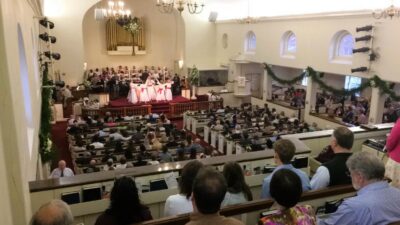
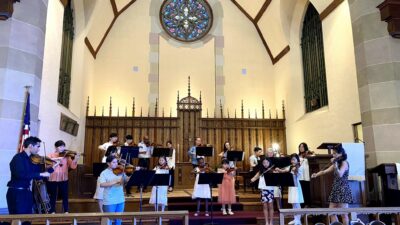



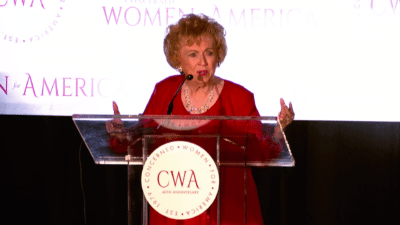








One Response
I’m curious what the impact of the pandemic was here. In 2021 there could have been many reasons, besides an “idol of comfort,” (whatever that means) why people’s behavior didn’t match their stated desire to volunteer. I wonder if data from 2019 or previous would show the same gaps.